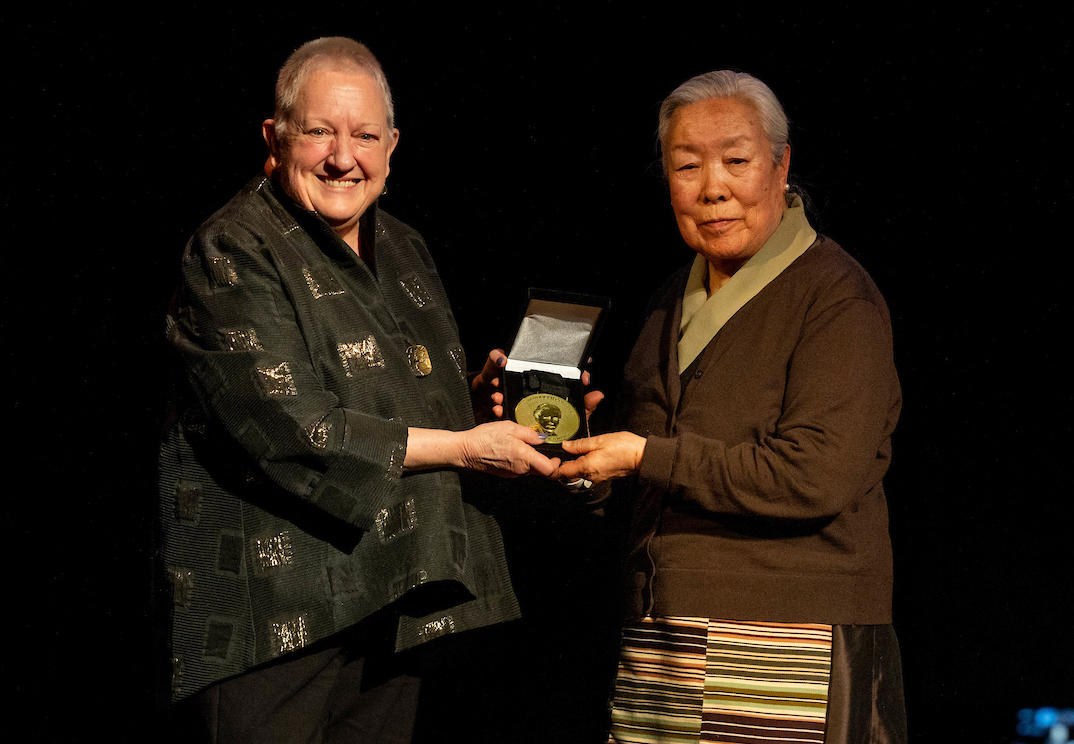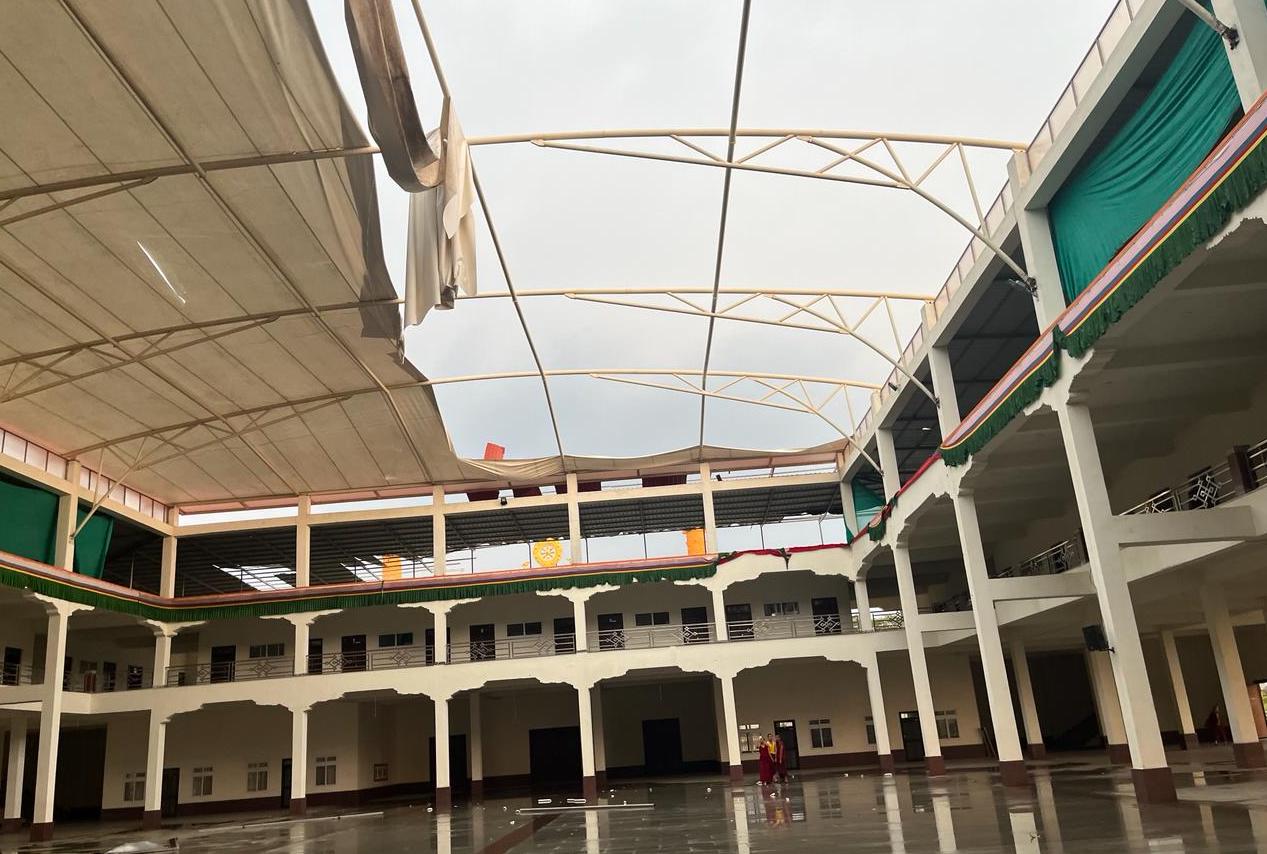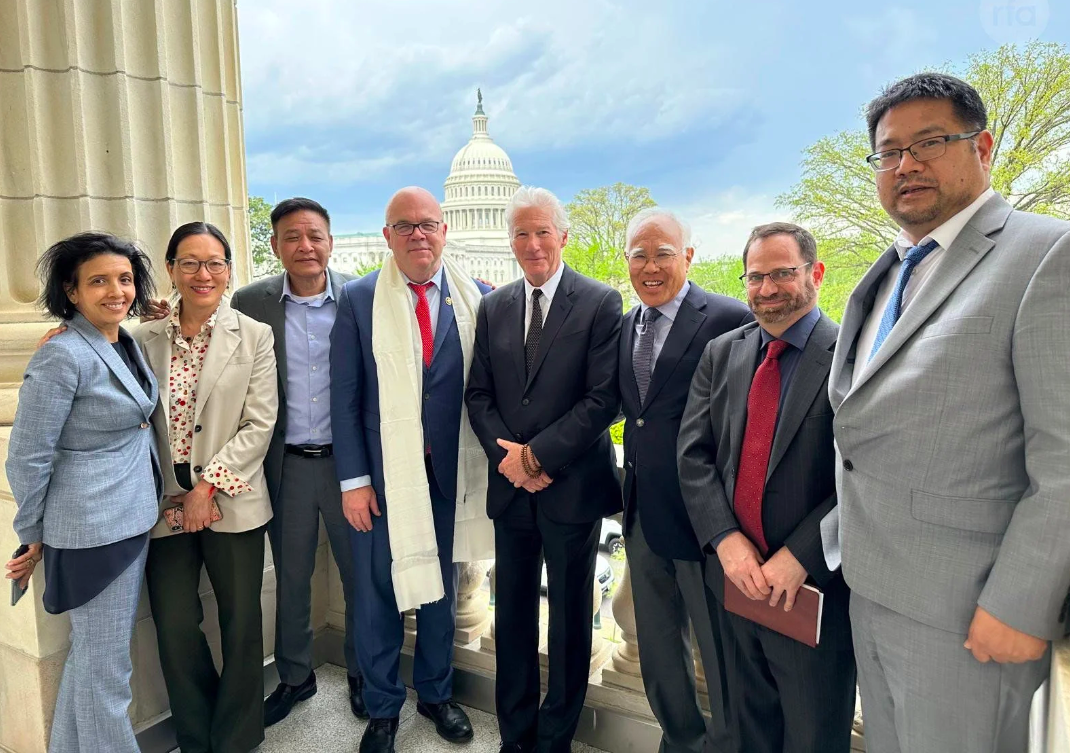Ngawang Sangdrol became symbol of Tibetan resistance
Ngawang Sangdrol, one of Tibet’s most famous political prisoners, arrived in the United States today five months after her parole from Lhasa’s Drapchi prison. At age 26, Sangdrol had already served 11 years in prison.
Ngawang Sangdrol’s reputation as a brave and determined activist grew as Chinese authorities increased her sentence on three separate occasions. Her final sentence of 21 years was the longest of any female political prisoner in Tibet.
Sangdrol was accompanied on United Airlines flight 850 from Beijing by a U.S. State Department official and released into the care of the International Campaign for Tibet (ICT) at National Airport in Washington, D.C. ICT will ensure that Sangdrol receives necessary medical attention and care.
Sangdrol walked off the plane by herself and was greeted by ICT staff members. She said she was very happy to be here but was feeling very tired and overwhelmed.
‘This is an important release for the Tibet movement. It does not indicate that conditions in Tibet are improving: any Tibetan would be arrested today for what she did 11 years ago,’ said Mary Beth Markey, Executive Director of ICT. ‘As a girl, Sangdrol was beaten and tortured, but her spirit and tenacity prevailed,’ Markey said.
Ngawang Sangdrol’s release came after years of campaigning by Tibetan and human rights organizations and follows sustained efforts to secure her freedom by U.S., French and other governments. Assistant Secretary for Human Rights Lorne Craner recently returned from Beijing, where final details were apparently finalized. Lodi Gyari, the Special Envoy of His Holiness the Dalai Lama, specifically urged that she be allowed medical parole when he visited Lhasa and Beijing in September 2002.
The Dui Hua Foundation, directed by John Kamm, has been a key facilitator in arranging the logistical releases of political prisoners in China and Tibet, including Ngawang Sangdrol’s release, which conspicuously coincides with the annual meeting of the United Nations Human Rights Commission in Geneva and occurs just weeks before U.S. Vice President Dick Cheney is scheduled to visit Beijing.
Sangdrol had been serving a 21-year sentence and was due for release on November 3, 2011. She was first detained for political activities at age 13 and was reportedly badly beaten during her nine-month detention. As a former political prisoner, she was barred from rejoining her nunnery after release. She was arrested again in 1992 at age 15 and sentenced to three years for attempting to demonstrate.
In 1993, Sangdrol and 13 other nuns tape-recorded songs about their love of Tibet and the cassette was smuggled out of prison. Upon discovery, their sentences were extended by six years and Sangdrol was again severely beaten. In 1996, her sentence was extended again for protests in prison. In 1998, she was given a third extension for prison protests, including a protest reportedly linked to the visit of a European Union ambassadorial delegation. In 2001, her sentence was reduced by 18 months for ‘showing genuine repentance and willingness to reform,’ according to Chinese authorities.
Sangdrol is the fourth prominent Tibetan political prisoner to be released significantly early since 2001. Three other political prisoners were released in 2002, but only had two to nine months reduced from their sentences.
CONTACT:
Mary Beth Markey
John Ackerly









